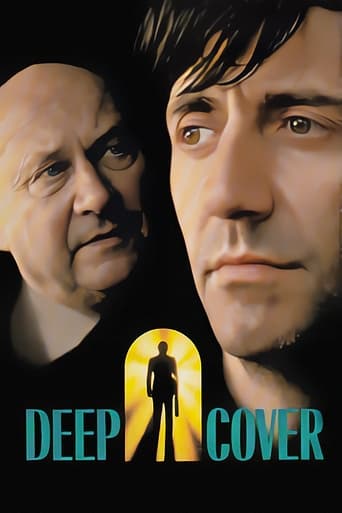

The infamous Cambridge Apostles, alumni of Trinity College at the University, supplied the members of that group of double agents, including Guy Burgess, Kim Philby, and Donald MacLean, who opted during the Cold War to side with the Soviet Union against their own MI5/MI6 employers in the 1950s, with their sensational exposure damaging beyond conceivable repair England's longstanding class system, and it is this tawdry affair that composes the spine of this outstanding motion picture filled with superior aesthetic moments. Conceived and scripted by Dennis Potter, the film's action opens upon the setting of a fully-nourished and isolated country estate where an erstwhile Cambridge don, Jason Cavendish (Donald Pleasence) resides in hoped-for seclusion, along with his daughter, second wife, and personal secretary, Mr. Hill, as we watch the two women hard at a highly competitive match of lawn tennis, when suddenly a stranger, Daniel Young (Tom Conti) invades the small group's privacy, albeit fortuitously since he performs successful first aid upon Cavendish after the old man suffers a near fatal attack of an undetermined sort. Young has purportedly come to the estate as an academic researching background of an early fantasy novel by Cavendish, "Cloud Cape", but the other men are suspicious of his agenda, and their proffered hospitality to Daniel, in spite of his lifesaving act, is forced; this not at all being the case with the women, however, who plainly find his aggressive attentions to be very pleasurable. Penned shortly after public identification of Anthony Blunt as the "Fourth Man" of the Cambridge Apostle scandal, the screenplay's title is taken from an Eton boating song (Guy Burgess attended Eton) that is raucously sung here by Cavendish and Hill (Denholm Elliott), additionally being heard during the closing credits. Shot upon the picturesque Isle of Wight, the film is graced by handsome visual texture throughout thanks to the combined talents of director Richard Loncraine and cinematographer Peter Hannan, in addition to the production design of Andrew Drummond, and there are splendidly witty animated graphics from Pat Gavin for the opening credits. Well-known earmarks of Potter's prose style, composed in equal parts of the elevated and the base, are to be found here in plenitude, a challenge easily met by an accomplished cast that benefits hugely from capable editing by Jon Costelloe. There are mysteries here: did Cavendish teach any of the wayward Apostles, who is Hill and what is his true function as secretary to the former don, and why has Young come to the estate? The still existent English class system is rather harshly dissected, most tellingly by Cavendish, as in his remark that "The upper class loves only what it owns." Engrossing from beginning to end, the work leaves lingering images of sequences and dialogue within a viewer's thoughts and must be watched more than once in order to fully appreciate its many merits and, in particular, the interwoven complexities of Potter's script.
... View MoreThis is a really wonderful film. It is almost like a play set on an estate in England. There are a few flashbacks but these are of short duration. It is one of those films that need to be viewed multiple times to really appreciate. A spy drama rather than a spy thriller.
... View More